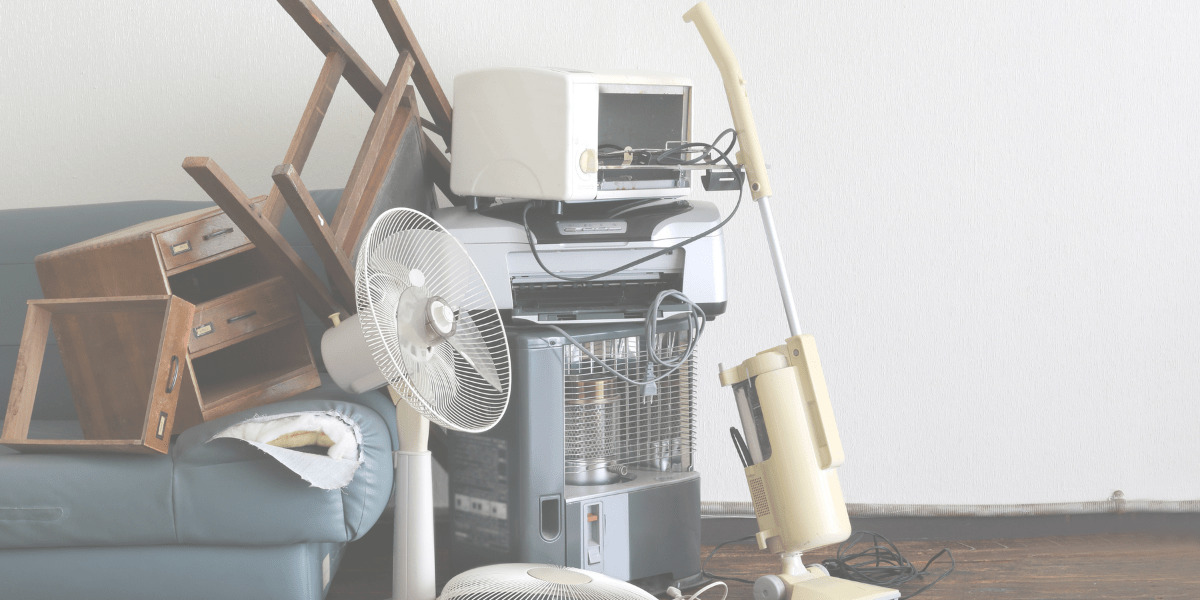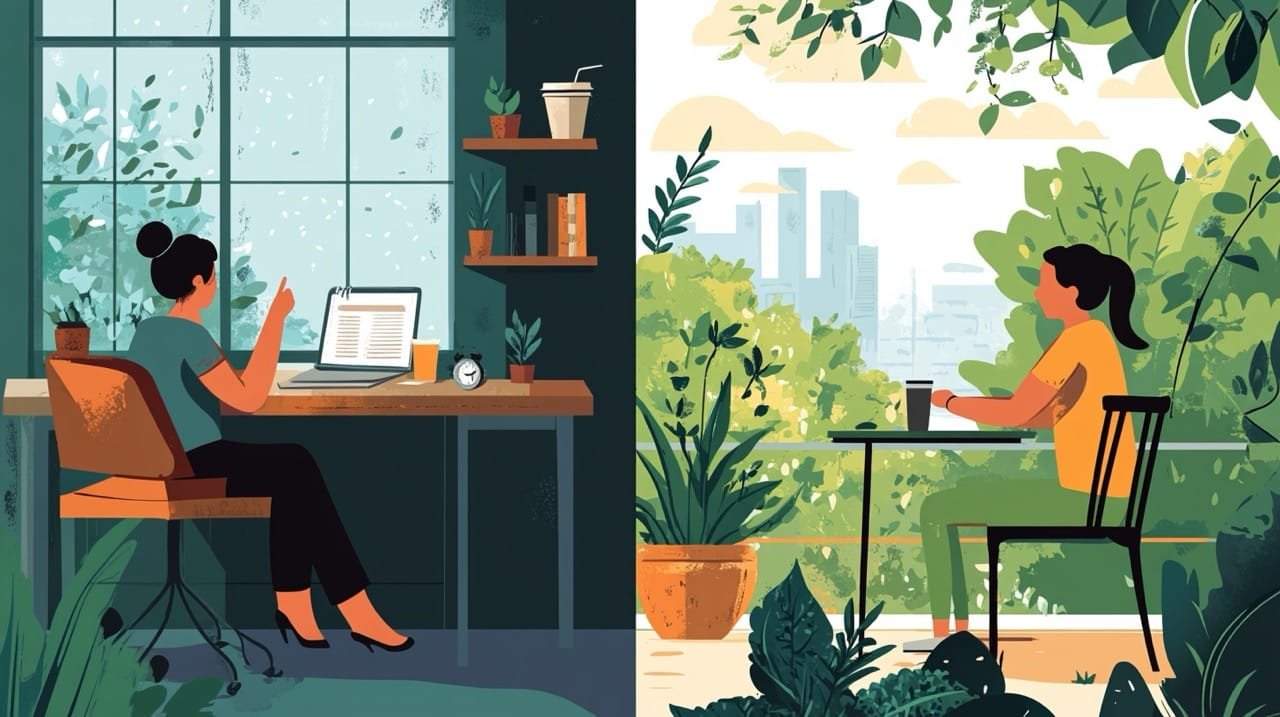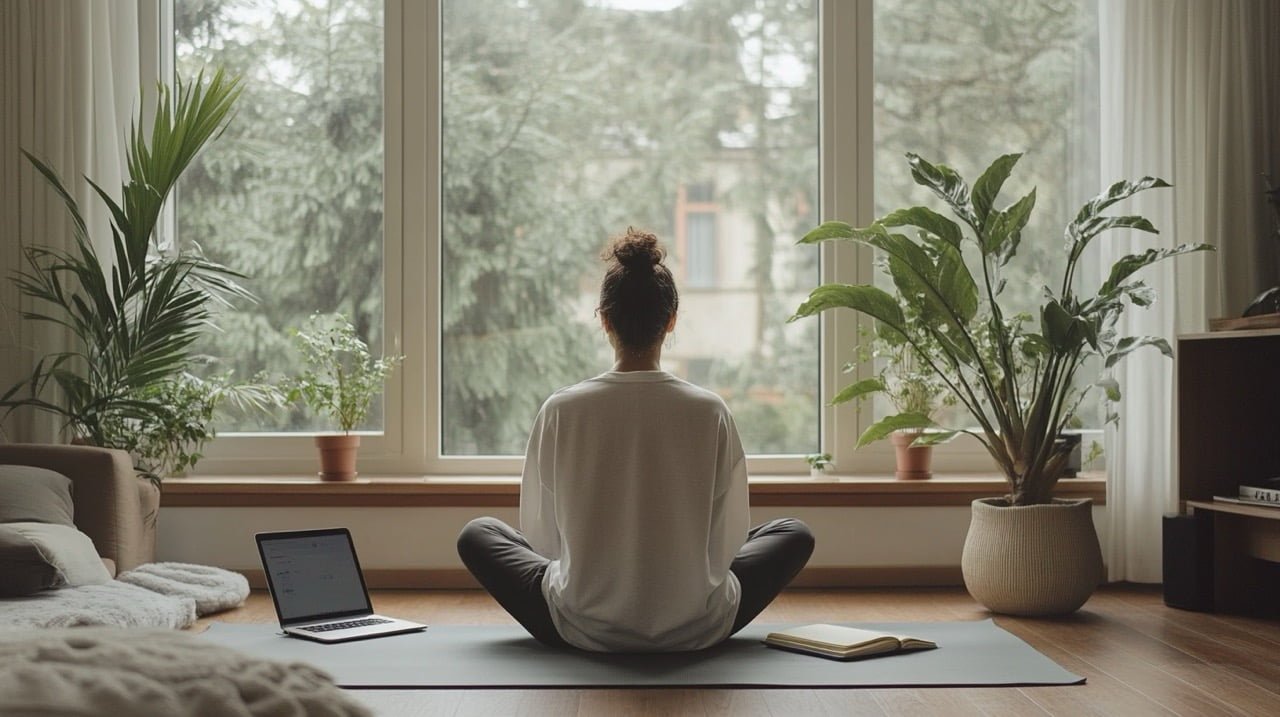We’ve been knee-deep in clutter and decluttering, yet it dawned on me I haven’t really discussed what clutter actually is. Clutter can manifest itself in different forms, and there are a multitude of definitions for it. The Oxford Dictionary says clutter is a “collection of things lying about in an untidy state.” There is more to it than visual disorderliness, though. So what is clutter?
There are four main types of clutter: physical clutter is the mess literally in your way and in your field of vision. Digital clutter is a relatively new phenomenon and it can slow down your devices as well as your productivity. Mental clutter is excess baggage weighing you down. Finally, emotional clutter consists of sentimental or normative trappings you have a hard time letting go.
Let’s have a closer look at these different kinds of clutter.
Table of Contents
Physical Clutter
Probably the most obvious type of clutter of them all, physical clutter consists of all those things in your household, garage, or workspace which are out in plain sight, untidy, and making a mess of your space.
Physical clutter could be the things that are no longer useful to you, or which you no longer want. Or they could be things you know you definitely would never part with, yet haven’t found a place for.
Physical clutter is often merely the result of not having had made a decision. In other words, it’s a sign of indecisiveness.
Should an article of clothing be tossed in the laundry hamper, or perhaps worn again sometime this week? “Meh, I’ll deal with it later.” And so it lands on the bedroom chair.
Am I going to do the ironing today, or perhaps not until Saturday? But oh, I really must do it today (and of course I won’t get to it). The pile remains stacked up against the washer next to the ironing board.
Is that stack of books at the bedside, which has been there since 2014, ever going to be read?
When is the extension on the tax return again? Better leave that pile of paperwork out on the desk.
And so on and so forth. This is how clutter piles up when we postpone decisions. Then there is the physical clutter which results from “collecting” despite having no space or organisational system in place to house the items.
Or the physical clutter that piles up by things we just don’t use anymore, outworn clothes, or stuff we started and never finished, such as a crafts project, but haven’t cleared away. Borrowed items not yet returned, or broken things waiting to be carted to the recycling centre can also contribute to the overwhelm. Not to mention those things meant for the garbage: old newspapers, magazines, expired goods and the like.
Like all clutter, physical clutter is rather subjective. Some people might start feeling distraught when something is out on the kitchen counter (hi, my name is Jenna). Others might feel comfortable in their sitting room surrounded by thousands of books.
To each her own, but when something is no longer in use, no longer loved, no longer brings you purpose and pleasure and hasn’t in a long time, it might be best to say goodbye. Plus, if you can’t find stuff you know you have because it’s buried underneath stuff you don’t use, that’s another sign that physical clutter is robbing your space (and nerves).
Digital Clutter
Blimey. Digital clutter is really a thing. A new thing. Fifteen years ago who would have thought you’d be spending three hours on a Friday night sifting through your hard drive, and the backup of the backup of your hard drive, trying to find that one damn file your tax accountant says you’re missing for your 2019 return? Which you know you have… somewhere!? 🤷🏻♀️
Having no file and folder structure in place wreaks clutter havoc. Along with tens of thousands of emails you will never refer to again, not to mention hundreds of unread emails, unread e-books, text messages, thousands of photos, many more redundant files you never digitally filed… the list goes on. Your laptop, desktop computer and mobile phone may very well be digital junkyards chewing at the memory of the devices they’re on.
I’ve only just touched the tip of the iceberg as to how to start reigning in the digital clutter. There is so much more to explore and if you’re interested in paper digitisation, subscribe to my blog updates so you don’t miss anything.
Mental Clutter
What is clutter of the mind?
Last week I read Journal of a Solitude by May Sarton. (Highly recommend, as a side note, despite being gut-wrenching. I must have dog-eared every second page.) I had to think about what clutter is when she wrote:
“Clutter is what silts up exactly like silt in a flowing stream when the current, the free flow of the mind, is held up by an obstruction. I spent four hours in Keene yesterday getting the car inspected and two new tires put on, also finding a few summer blouses. The mail has accumulated in a fearful way, so I have a huge disorderly pile of stuff to be answered on my desk. In the end what kills is not agony (for agony at least asks something of the soul) but everyday life. (…) I feel cluttered when there is no time to analyze experience. That is the silt—unexplored experience that literally chokes the mind.”
Journal of a Solitude, p. 159f.
Ms Sarton is describing the threshold of clutter between our physical and mental states. The physical mountain of mail on her desk on the one hand, and the overwhelm of dealing with never-ending daily errands on the other, which leave her feeling mentally depleted when she has had no time to process her experiences.
I found this passage striking, most particularly because she so astutely describes the overwhelm as an introvert.
Regardless of whether you’re introverted or extroverted, mental clutter puts you in overdrive and bogs you down. Examples: Hanging on to old ideas, poor habits, and outgrown dreams which no longer correlate to your life today.
Allowing yourself to get sucked into an overwhelming overload of information on every corner, endless dates, meetings, and appointments, and the perpetual fear of missing out or not being able to keep up with it all. Decisions you constantly put off, even though they cost you sleep every night. Speaking poorly to yourself in your own head, clinging to negative thoughts, perhaps without even realising it. Addictions to alcohol, drugs, social media, sex, gambling, binging.
It can all clutter your headspace, creating a swirling vortex of mental fuzziness distracting you from what’s actually important.
Tackling mental clutter is trickier than its physical or digital counterparts, and deserves a lengthy post of its own. In a nutshell, you can start fighting it by practicing saying no.
Saying no to social media diversion by turning your phone off in the evenings. Saying no to fretting about the future or crying about the past, and instead focusing on this very moment. By not trying to please everyone and meet their expectations. By not participating in activities which clog your calendar, don’t really interest you, and sap your energy. And by trimming down your list of to-do items so that you’re not in an incessant state of worry. By letting go.
Emotional Clutter
Our clutter isn’t relegated only to material things. We clutter our lives with destructive relationships, careers, obligations, rituals, busyness, minutiae, news, media, politics, gossip, drama, rumors.
The Minimalists
What is clutter of the heart? It can be wide-ranging, and equally burdensome.
There is such as thing as having people-clutter in your life. Hanging on to friends you no longer share common values with, or friends whose negativity drags you down.
Staying in regular contact with ex-partners you’re no longer together with, only to uphold the “we parted amicably and are such good friends now” farce.
If you were such good friends to one another and they valued you at all, you would still be together with them. If they loved you and were good for you, you would still be together with them. You’re not. Stop responding to them and move on. They’re parasites leeching your energy and preventing you from finding a satisfying relationship.
The list goes on. Drama, in all of its insidious flavours, including the media. Toxic, manipulative family members and relatives who drain you, take advantage of you, and emotionally abuse you. Anyone who has ever physically abused you. Anyone who has ever lied to you. People who never lift you up, people who do nothing to propel you further on your own journey to becoming a better person:
Let these poisonous relationships disappear from your life. Cut your ties and move on.
There is so much to gain by doing so. Freeing yourself of the emotional clutter and baggage they cart into your life will open up space for you to let new, more harmonious people into your life.
Emotional clutter is also, like mental clutter, in our heads. Clinging to anger or suppressing it, always playing the victim whose feelings are hurt, not being able to prioritise healthy relationships, or not dealing with your disappointments and moving on are cluttering your mind and holding you back from growing emotionally.
In defining what clutter is, the emotional kind can also cross over into the physical. Hanging on to things like children’s drawings due to sentimental attachment, gifts you don’t like but feel obliged to keep, and nostalgic mementos are all common kinds of emotional clutter which also take up your physical space. Even clearing out old hobby supplies you haven’t used in years can be extremely emotional, as they invoke reminiscence of past aspirations you once had.
What Is Clutter? A Privilege
Any of these four types of clutter can feel overwhelming. Clutter is possessive; it has a way of taking over your life and your space if you let it multiply. Overcoming the fear of parting with things and people is the first step towards eliminating the excess that’s holding you back.
Slowly transforming your space, your devices, your head and your social relationships by decluttering can help us regain control, a sense of purpose, more happiness and satisfaction. Not to mention space. Space for the things and people who are good for us.
In conclusion, I want to leave you with some food for thought. We speak frequently of taming our cluttered messes. In parallel, minimalism, tidying, and home organisation have become huge consumer markets in recent years, selling us yet more products and services. It’s a paradox.
Here’s a reality check, for all of us:
Most of the world lives hand to mouth and would probably love to be in the lucky position to accumulate what we call clutter instead of having to experience war. Or see their babies die of malnutrition, or their children kidnapped by the junta and their brothers cruelly killed for organ harvesting.
We live in an excess of excess in our so-called “first world,” while everyone else has very few, if any, possessions. And truly a great deal more existential angst that we can ever imagine.
In more places than not, folks wear a pair of sandals until it falls to bits. A “capsule wardrobe” consists of one shirt, and one skirt or one pair of trousers. There are no credit cards, there is no Amazon, and there is no money for personal spending, let alone for eating what one might fancy eating.
That’s the real minimalism. And it’s quite far indeed from the joyride of Konmari’ing and clear plastic storage bins being sold to you on Instagram.
I don’t know about you. But I try to remember this every day, and to be grateful.






Leave a Reply